
In 2011, Chile was home to 42% of the world's astronomical infrastructure, consisting principally of telescopes. In 2015, it was estimated that Chile would contain more than 50% of the global astronomical infrastructure by 2030. In the Atacama desert region of northern Chile, the skies are exceptionally clear and dry for more than 300 days of the year. These conditions have attracted the world's scientific community to develop highly ambitious astronomical projects in the Atacama desert.
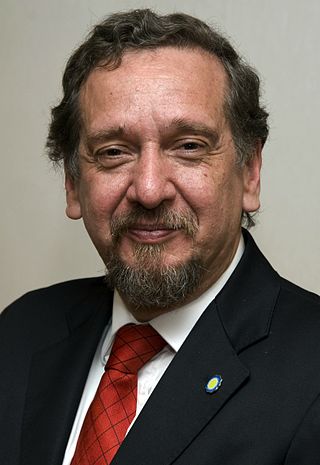
Lino Barañao is an Argentine chemist and politician. He was Minister of Science, Technology and Innovative Production of Argentina under President Mauricio Macri. He also served the same position under former president Cristina Fernández de Kirchner.
The Instituto de Astronomía Teórica y Experimental (IATE) is a scientific institute funded by the Consejo Nacional de Investigaciones en Científicas y Técnicas (CONICET) and the Universidad Nacional de Córdoba (UNC), located in the city of Córdoba, Argentina, and dedicated to the study of different topics in astronomy. The headquarters of the institute are located at the Observatorio Astronómico de Córdoba.

Zulma Nélida Brandoni de Gasparini is an Argentine paleontologist and zoologist. She is known for discovering the fossils of the dinosaur Gasparinisaura, which was named after her.

Andrea Gamarnik is an Argentinian molecular virologist noted for her work on Dengue fever. She received a 2016 L'Oréal-UNESCO Awards for Women in Science fellowship for work on mosquito-borne viruses include Dengue fever. She also was granted the Konex Award Merit Diploma in 2013 and 2023 for her work in those last decades. She studied at the University of Buenos Aires and the University of California, San Francisco. She has done work for the Leloir Institute. She is the first female Argentinian to become a member of the American Academy of Microbiology.
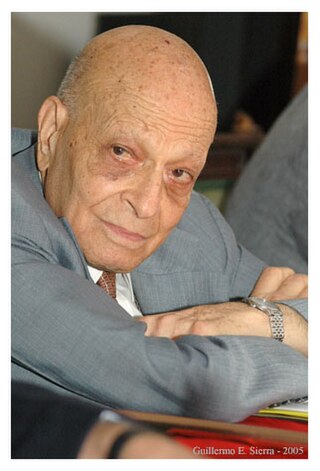
Jorge Sahade was an Argentine astronomer with more than 200 publications in journals and conferences. His mother gave birth on February 17, but having been born very little, it was thought that he would not survive, so he was officially entered late on February 23.
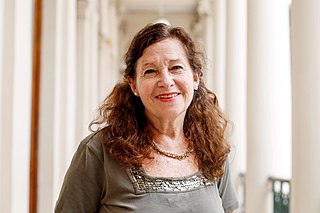
Noemí Elisabet Zaritzky is an Argentine chemistry professor and researcher.
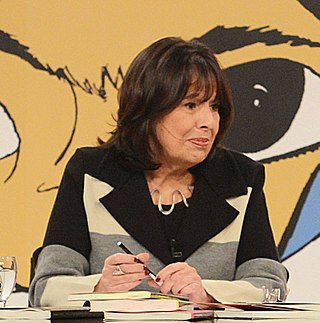
Cristina Mucci is an Argentine writer and journalist. Since 1987 she has been directing and producing the television program Los siete locos, dedicated to the dissemination of books and culture. She is the author of books about Argentine writers, such as Leopoldo Lugones and three emblematic women of Argentine literature from the 1950s–60s: Marta Lynch, Silvina Bullrich, and Beatriz Guido.
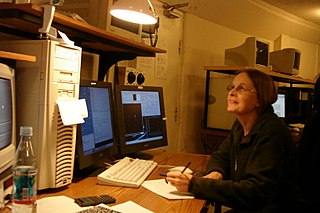
Nidia Irene Morrell is an Argentine astronomer who is a permanent staff member at the Las Campanas Observatory in La Serena, Chile. She was a member of the Massive Stars research group led by Virpi Niemelä and the Hubble Heritage Project. Professionally, she is known for her numerous contributions related to the astrophysics of massive stars. She participates in the systematic search for variations of brightness in stellar objects, including the observation of a candidate for the Thorne–Żytkow object. She was also a member of the team that discovered the supernova ASASSN-15lh.

Dora Beatriz Barrancos is an Argentine researcher, sociologist, historian, feminist, and politician.
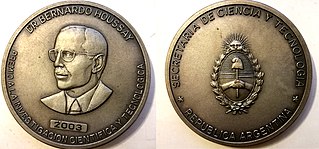
The Bernardo Houssay Award is a distinction awarded by Argentina's Ministry of Science, Technology and Productive Innovation to honor outstanding work by scientists and researchers. The Ministry selects recipients annually through a jury of prominent scientists. Presented by the President of Argentina, it is one of the country's most prestigious prizes in the field of science and engineering.

Roberto Carlos Salvarezza is an Argentine biochemist, researcher and politician. He was Argentina's Minister of Science, Technology and Innovation from 2019 to 2021, in the cabinet of President Alberto Fernández.
Inés Angela Camilloni is an Argentine climatologist, specializing in climate change in South America. She is a professor at the University of Buenos Aires and an independent researcher at the Center for Research on the Sea and Atmosphere. She is also the academic secretary of the Faculty of Exact and Natural Sciences of the UBA. Camilloni is a resident in the Solar Geoengineering Research Program of Harvard University and director of the Master's in Environmental Sciences at the Faculty of Exact and Natural Sciences of the UBA.

The history of science and technology in Argentina covers scientific policies and discoveries made in the country.

Adriana Cristina Serquis is an Argentine physicist, the president of the National Atomic Energy Commission (CNEA), and principal researcher of the National Scientific and Technical Research Council (CONICET). In 2014, she received the L'Oréal-UNESCO National Award For Women in Science for her contribution to the rational use of electrical energy.

Andrea Celeste Saulo is an Argentine meteorologist and educator. She has served as director of the Servicio Meteorológico Nacional (SMN) since 8 July 2014, and first vice president of the World Meteorological Organization (WMO) since 24 April 2018. She is the first woman to hold the latter office.

Susana Graciela Landriscini is an Argentine economist, professor, researcher and politician, currently serving as National Deputy elected in Río Negro. A member of the Justicialist Party, Landriscini was elected in 2019 and currently sits in the Frente de Todos bloc.
Olimpia Iris Lombardi is an Argentine philosopher of science whose research involves ontology in chemistry and in quantum mechanics, including the use of ontological pluralism to argue for treating chemistry as autonomous from, rather than subsidiary to, physics.
Cristina Hemilse Mandrini is an Argentinian solar physicist. She is currently a researcher at the Argentinian National Council for Scientific and Technical Research (CONICET) and a professor at the University of Buenos Aires.

María Fernanda Ceriani is an Argentine biologist. She studies the neuronal mechanisms involved in the regulation of circadian rhythms, using Drosophila melanogaster as a biological model. She is the president of INIS Biotech, heads the Behavioral Genetics Laboratory at the Leloir Institute Foundation, and is a researcher with the National Scientific and Technical Research Council (CONICET). Ceriani received her PhD from the University of Buenos Aires and did postdoctoral research at the Scripps Research Institute. She won a L'Oréal-UNESCO For Women in Science Award in 2011.















